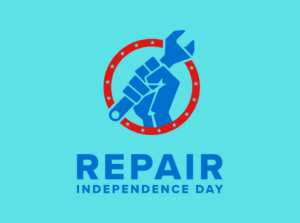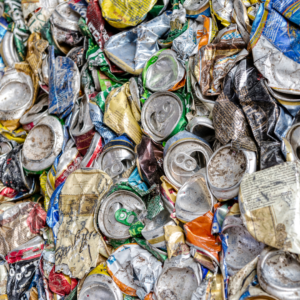Do I need to clean my peanut butter jar?
We often receive questions about how clean containers should be before placing them in the recycling bin. It’s a classic dilemma: to rinse or not to rinse? Let’s dive into it.
When it comes to peanut butter jars, soup cans, yogurt containers, or any recyclable container, the golden rule is to give them a quick rinse. Clean containers not only contribute to a healthier recycling stream but also streamline the sorting process for our team.
In addition, it’s important to note that recyclables are sorted by size, weight, and shape, and if a container is not empty, it will alter the weight considerably and could be missed by our automated machinery or discarded by our crew. So make sure you empty your water bottles before tossing them in the recycling!
The Residue Myth
From questions we receive on social media, through our customer-service lines, and from guests on our recycling tour program, it’s evident that there’s a perception that dirty containers in the recycling can lead to a “contaminated load,” potentially sending an entire bale of material into the trash. This is not accurate. The recovery and processing of recyclable materials address food residue and other contaminants, and the presence of a small amount of tuna fish in a tin will not result in the rejection of a bale or a load.
However, while a small amount of residue won’t disrupt the recycling process, we do encourage cleanliness. The key is to strike a balance – containers should be reasonably clean, but a hint of residue won’t contaminate the load.
Why it Matters
Real people power much of the sorting at our facility, and your effort in keeping containers clean makes their jobs safer and more efficient. We consider recycling an essential service and our team members essential workers. Above all, we value their health and safety. Spoiled food attracts insects, bees, and rodents. Spilled detergent is slippery and can lead to slips and falls. By taking a moment to give your containers a quick rinse, you’re playing a vital role in keeping the recycling sorting process efficient and safe for our team members.
A Collective Effort
So, the next time you scrape the bottom of the peanut butter jar, there is no need to get out the green scrubby or put the jar in the dishwasher. Just grab a spatula and clean out the residue – you may be surprised at how much peanut butter you have been wasting!
Share this Story!

Repair Independence
It is Time to Assert Your Right to Repair Your Own Stuff! On July 1st, the Digital Fair Repair Act

Minnesota Passes Extended Producer Responsibility for Packaging
Minnesota just became the fifth state to pass Extended Producer Responsibility (EPR) for Packaging. The Packaging Waste & Cost Reduction

Strengthening the Economy and Environment Through Aluminum Recycling
The Importance of Aluminum Recycling Although aluminum is the most abundant element in the earth’s crust and the third most

Testimony: Packaging Waste & Cost Reduction Act (SF3561)
“I cannot stress enough that we cannot recycle and compost our way out of the packaging crisis. We need a
